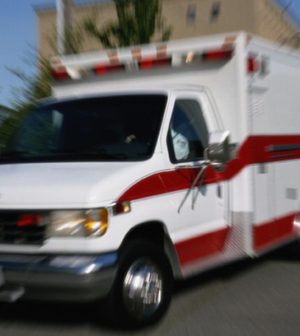- Could Your Grocery Store Meat Be Causing Recurring UTIs?
- Are You Making This Expensive Thermostat Error This Winter?
- Recognizing the Signs of Hypothyroidism
- 10 Strategies to Overcome Insomnia
- Could Artificial Sweeteners Be Aging the Brain Faster?
- Techniques for Soothing Your Nervous System
- Does the Water in Your House Smell Funny? Here’s Why
- Can a Daily Dose of Apple Cider Vinegar Actually Aid Weight Loss?
- 6 Health Beverages That Can Actually Spike Your Blood Sugar
- Treatment Options for Social Anxiety Disorder
Can the Fill-In Babysitter Handle an Emergency?

Faced with hectic holiday schedules, parents often ask family and friends to pitch in and babysit their children. But many parents fail to provide critical information about what to do in an emergency, a new survey finds.
Less than half of parents with children aged 5 and under posted emergency contact information, such as parents’ work or cell numbers; the number for the child’s doctor; or how to get in touch with another family member or friend, according to the survey.
The results are from the C.S. Mott Children’s Hospital National Poll on Children’s Health at the University of Michigan. The survey included nearly 400 parents of children 5 and under.
“Parents often need extra babysitting help around the holidays when childcare facilities are closed and regular babysitters are less available,” poll co-director Sarah Clark said in a university news release.
“Family members and friends may be a natural choice to help watch children, but parents should make sure they are preparing babysitters for emergencies, especially those who don’t have young children themselves,” she noted.
The researchers said they were surprised to find that parents who lived more than 15 minutes from an emergency room were less likely to post key contact information than those who lived closer.
Clark said sitters should be able to easily find key contact information and be comfortable handling different types of emergencies.
“Parents shouldn’t assume sitters have all of the information they need. They should go over basic information whether they will be gone all day or just a couple of hours,” she added.
Along with posting emergency contact phone numbers for babysitters, parents should outline their preferences for handling different situations, Clark suggested.
In addition, parents should provide a first-aid book to help sitters handle non-urgent problems, and specify their preference for a certain hospital or ER in serious situations.
If children have allergies, take medication or have other health requirements, it’s especially important that sitters have written information they can use if they have to call the doctor’s office or go to the ER, Clark said.
More information
The American Academy of Pediatrics has more on babysitting.
Source: HealthDay
Copyright © 2026 HealthDay. All rights reserved.










